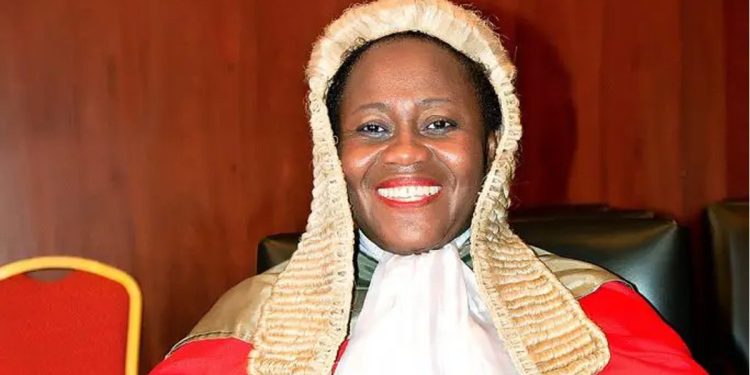
The Supreme Court has referred a case involving the estate of a deceased pastor to the Chief Justice to investigate the conduct of the judge and a Court Registrar involved in that case.
In a unanimous decision Tuesday [June 6, 2023], a five-member panel of the apex court, presided over by Justice Jones Dotse, said the antecedents of the case cast a slur on the integrity of the judicial system.
The court, through the referral, urged the Chief Justice to investigate Justice Emmanuel Ankamah, who presided over the case at the High Court in Tema in 2022 but is now a Justice of the Court of Appeal, and the then Registrar of the High Court in Tema, Sabastian Agbo.
“In our collective wisdom, we deem it appropriate to refer this case to the Chief Justice to cause further investigations into the conduct of the learned trial judge and Sebastian Agbo, then Registrar of the High Court, Tema under whose tenure the sordid affairs happened.
This should cover all officers who played any role in this shameful specie of conduct,” the court said.
The decision was the valedictory judgment of Justice Jones Dotse, who retires Thursday [June 8, 2023].
The other Justices on the panel were Avril Lovelace-Johnson, Issifu Omoro Tanko Amadu, Henrietta Mensah Bonsu, and Emmanuel Yonny Kulendi.
Certiorari application
The highest court of the land made the referral to the Chief Justice after it granted a certiorari application quashing the decision of Justice Ankamah which struck out a caveat challenging the letters of administration for the sharing of the properties in the estate of the late Rev Emmanuel Dorgbadzi.
A caveat is a document that is filed in court to prevent the proposed executors or administrators of a deceased person’s estate from getting permission to administer the estate assets.
Delivering the judgment, Justice Dotse held that Justice Ankamah failed to give the caveators a hearing before striking out the caveat and, therefore, the court breached the rules of natural justice.
It was the considered view of the court that the evidence on record showed that the case was not listed for hearing, but strangely it was heard on the blind side of the caveators, with the presiding judge striking out the said caveat for want of prosecution and granting the letters of administration to the interested parties.
According to Justice Dotse, the irregular manner in which the case was determined pointed to the fact that the presiding judge “appeared to be biased against the applicants”.
Again, the court wondered why Justice Ankamah struck out the caveat when the issues raised in the caveat were of utmost importance as it raises questions about the capacity of the parties who filed the letters of administration.
“It is therefore clear that the affidavit filed by the applicants herein that had raised serious issues of fact and law as regards priorities of a grant of the letters of administration. That being the case, the learned trial judge should have been circumspect in casually dismissing this caveat,’ the court held.
Apart from quashing the decision by the Tema High Court, the Supreme Court also prohibited Justice Ankamah and the Registrar of the High Court from ever dealing with the case.
Undervaluation
The Supreme Court further questioned the values of the properties in the estate listed in the letter of administration, describing it as undervalued and deceptive.
For example, the letters of administration valued a hospital at Obuasi at GH¢60,000, a school at Obuasi at GH¢35,000, and a house of the deceased at Tema valued at GH¢30,000.
In view of this, the Supreme Court also referred the interested parties in the certiorari application who filed the letter of administration at the Tema High Court as well as their lawyers.
“We further advice and urge the Hon Chief Justice to cause investigations into the apparent device by the interested parties herein to undervalue the Estate of the deceased.
Learned Counsel who filed the application for and on behalf of the interested parties should be made to give an explanation as to the basis for the valuation in respect of the properties stated herein,’ the court added.
Disclaimer: Ahotoronline.com is not liable for any damages resulting from the use of this information
Graphiconline




